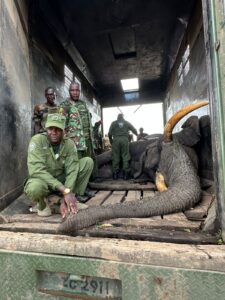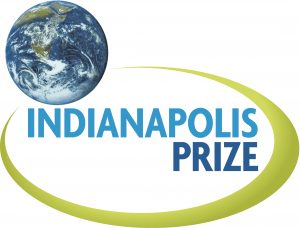
The Indianapolis Prize took place this past week and Mara Elephant Project’s founder, CEO and several board members were privileged to attend. The Indianapolis Prize is the world’s leading award for wildlife conservation; it recognizes and rewards conservationists who have achieved major victories in advancing the sustainability of an animal species or group of species.
The winner, Professor Carl Jones, and other finalists all spoke about conservation in the most passionate of manners, though all of their work varied by species and location, there were several over-arching themes throughout the weekend that could be applied to MEP’s efforts in the Mara.
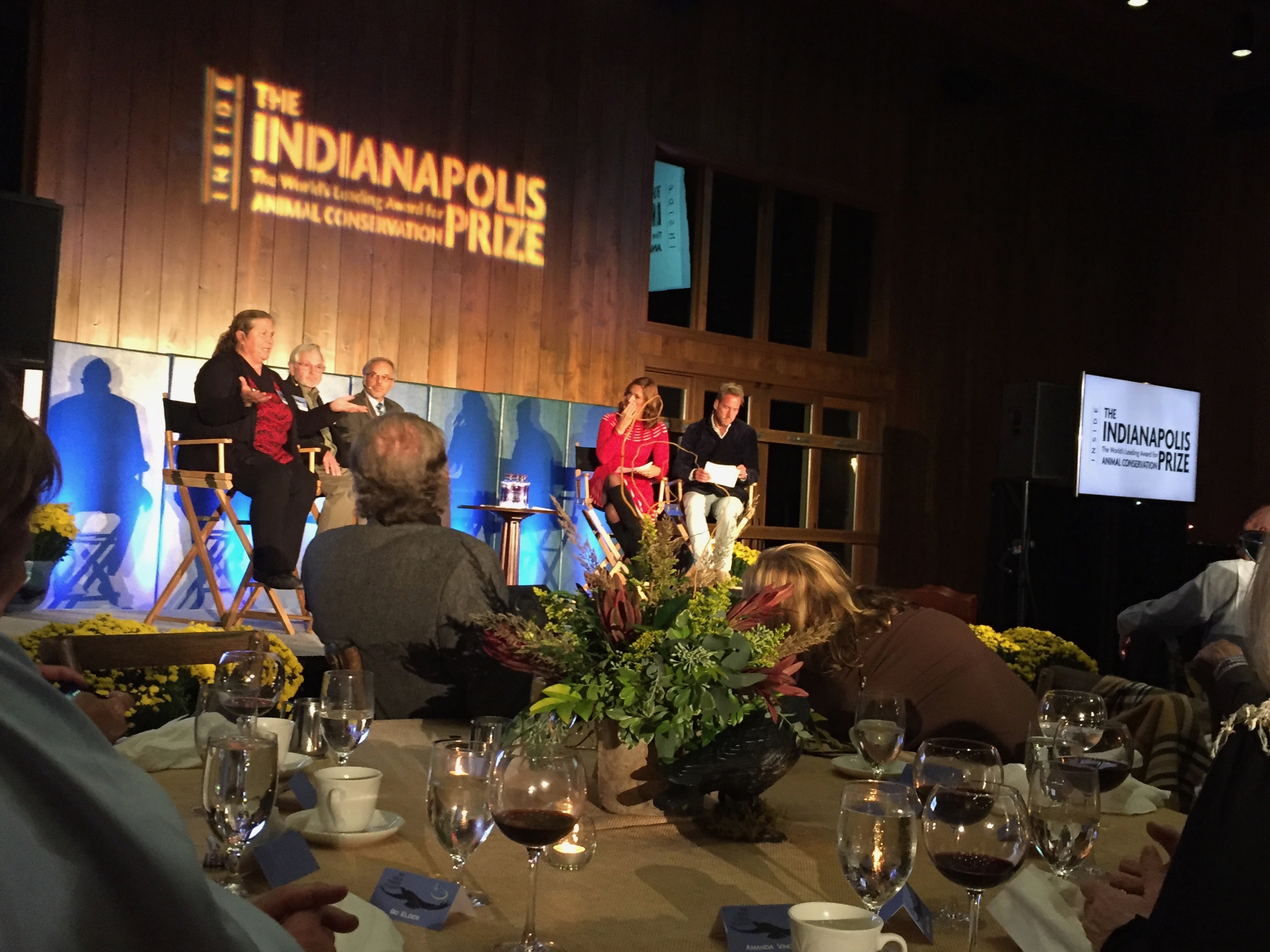
Human-wildlife conflict is on the rise. Everyone agreed there is less space for our wildlife because there are more humans on Earth than ever before. MEP sees this in the Mara on a daily basis with constant calls to respond to elephants raiding crops or passing through villages and homesteads. The rapid growth of the human population in the Mara means there are fewer resources to go around and less space for elephants to roam as they would in the wild.
Many of the conservationists agreed that the solutions to less space were more conservation education for kids, better resources for women, a commitment to collecting good data and overall less harmful environmental practices by people and corporations.
If we can teach children while they are still young and impressionable that their decisions have a direct impact on wildlife conservation and the betterment of our planet, then they are empowered to pass along simple changes to their families and communities. We need to include conservation education in schools and encourage out-of-the-box thinking toward solutions to our Earth’s space crisis. MEP is proud to sponsor a Wildlife Club in the Mara that brings rangers into local schools to do educational presentations that teach the children about human wildlife conflict and shows them rangers are pillars of their community.
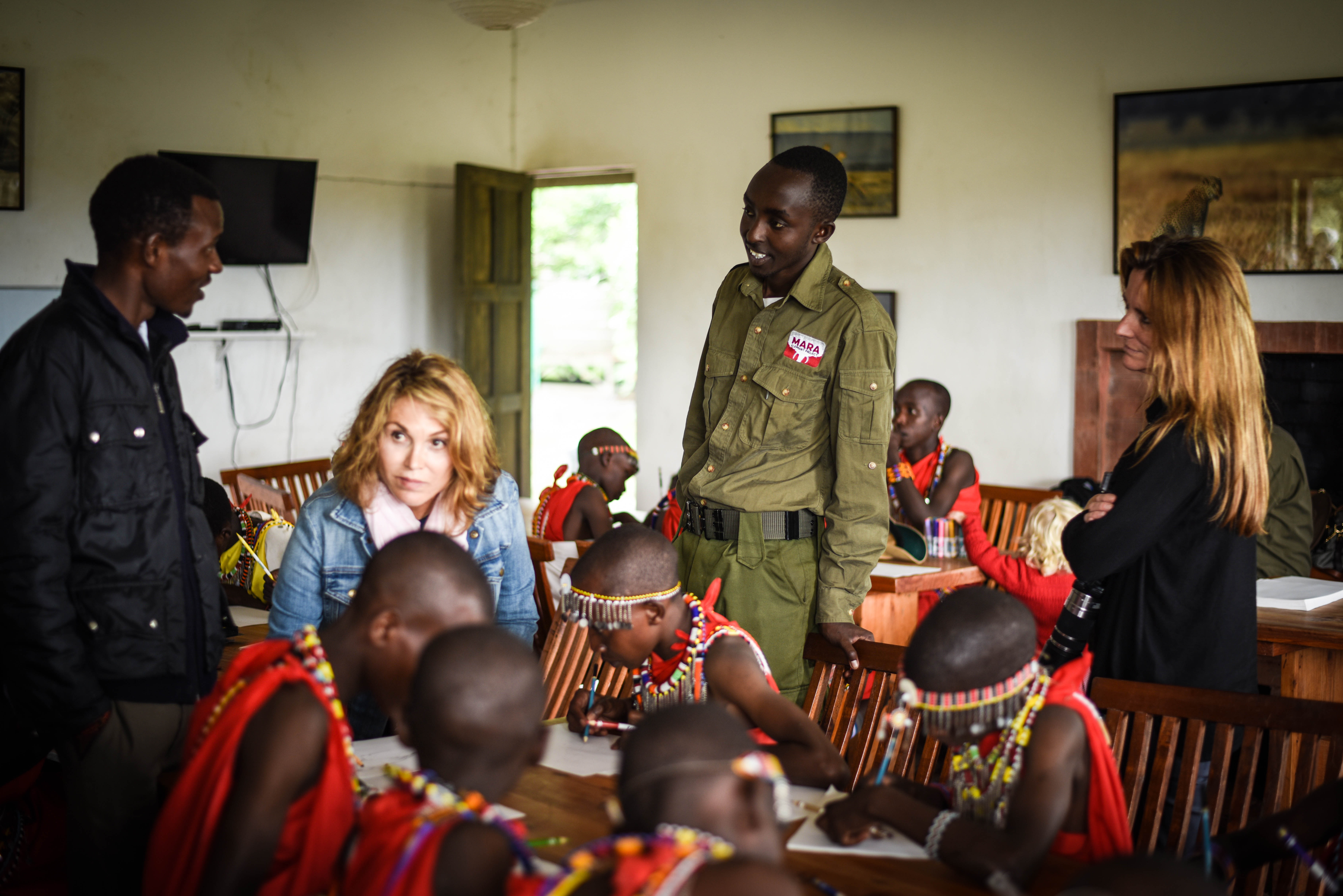
“If we have young people that are developing into these custodians of the ecosystem, I think we’re making a real difference.” Marc Goss, CEO, Mara Elephant Project
Additionally, empowering women with independence, reproductive options and education will thus empower their children to strive towards the same thing or better. Women hold the key to a lower population on Earth that is more educated and better contributors to our planet’s overall well being.
MEP is also working with the local community on land-use planning and fair compensation for locals so that they can see that wildlife has value. Over grazing and harmful charcoal burning are reducing the space we all share with wildlife even more and if we can educate our local population and incentivize them to view wildlife as a valuable asset to their community, then we can ensure they live in harmony for years to come.
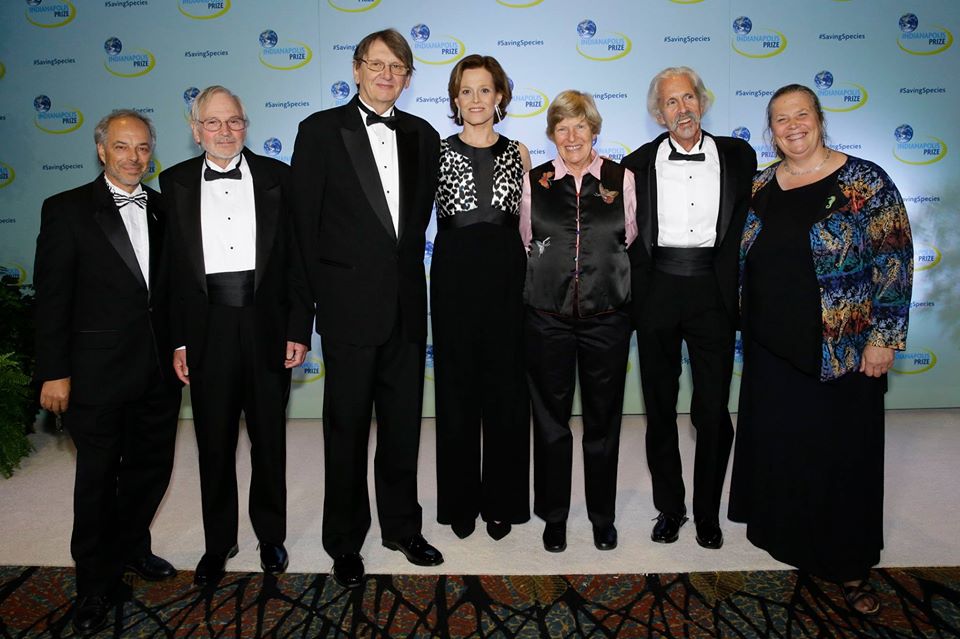
“When conservation includes community everyone is lifted. When people thrive, gorillas and other wildlife will as well.” Sigourney Weaver, 2016 Jane Alexander Global Wildlife Ambassador Award Winner
Good data was also a key focus of all of the researchers being recognized. MEP has seen first hand the positive effects of good data in land-use planning. MEP currently monitors 11 collared elephants and the data they receive from these collars is priceless when speaking with local communities and government about elephant corridors and effective human-elephant conflict mitigation tactics.
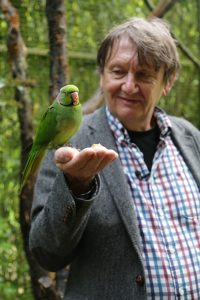 Though it all seems too big to grasp, it was agreed that everyone can do one little thing to make this Earth a better place for wildlife. Small acts turn into big impacts and Professor Carol Jones was proof that saving one species of bird can turn into saving more than a dozen and thus turn into saving an ecosystem. MEP deploys this grassroots boots on the ground initiative in the Mara. Though the troubles seem insurmountable, MEP believes that if it can save even one African elephant it will ensure that this keystone species continues to thrive in the ecosystem therefore empowering the community to not only survive but make Kenya a better place.
Though it all seems too big to grasp, it was agreed that everyone can do one little thing to make this Earth a better place for wildlife. Small acts turn into big impacts and Professor Carol Jones was proof that saving one species of bird can turn into saving more than a dozen and thus turn into saving an ecosystem. MEP deploys this grassroots boots on the ground initiative in the Mara. Though the troubles seem insurmountable, MEP believes that if it can save even one African elephant it will ensure that this keystone species continues to thrive in the ecosystem therefore empowering the community to not only survive but make Kenya a better place.
Article about Indy Prize by Mike Crowther, President & CEO, Indianapolis Zoo


